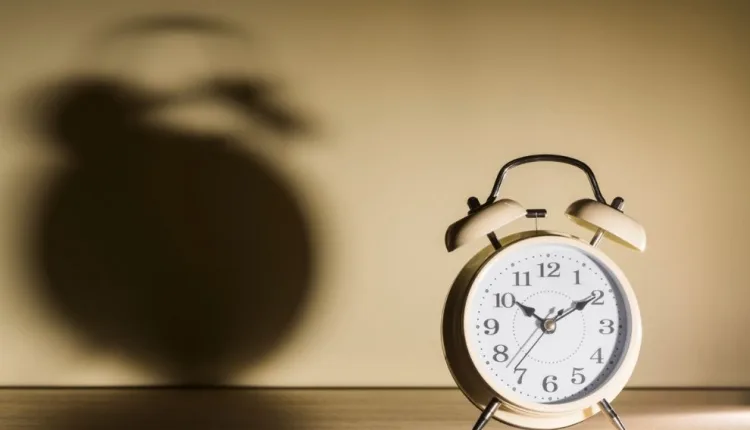
Although there are no specific surahs for Prayers, there are surahs that the Messenger of God recited more frequently in some Prayers. Some of those will be mentioned below.
However, it should not be understood that He would constantly recited these surahs. Because reciting the same surahs continuously causes one to ignore the Qur’an’s other surahs and verses in the Prayers. This is not very convenient. From this point of view, the Islamic Scholars have made it possible to recite these surahs during those Prayers, but reported that they are not necessary.
1- The Fajr (Morning) Prayer
Sunnah:
It is narrated that the Prophet Muhammad ﷺ kept the sunnah of the Morning Prayer easier.1
Sometimes he recited the surah al-Kafirun in the first rakah and the surah of al-Ikhlas in the second rakah.2
Sometimes, in the first rakah, the following verse al-Baqarah (2:136) :
قُولُوا آمَنَّا بِاللَّهِ وَمَا أُنزِلَ إِلَيْنَا وَمَا أُنزِلَ إِلَى إِبْرَاهِيمَ وَإِسْمَاعِيلَ وَإِسْحٰقَ وَيَعْقُوبَ وَالأَسْبَاطِ وَمَا أُوتِيَ مُوسَى وَعِيسَى وَمَا أُوتِيَ النَّبِيُّونَ مِنْ رَبِّهِمْ لاَ نُفَرِّقُ بَيْنَ أَحَدٍ مِنْهُمْ وَنَحْنُ لَهُ مُسْلِمُونَ
In the second rakah, he recited the verses 52 or 64 of Al Imran:3
فَلَمَّا أَحَسَّ عِيسَى مِنْهُمُ الْكُفْرَ قَالَ مَنْ أَنصَارِي إِلَى اللَّهِ قَالَ الْحَوَارِيُّونَ نَحْنُ أَنصَارُ اللَّهِ آمَنَّا بِاللَّهِ وَاشْهَدْ بِأَنَّا مُسْلِمُونَ
قُلْ يَا أَهْلَ الْكِتَابِ تَعَالَوْا إِلَى كَلَمَةٍ سَوَاء بَيْنَنَا وَبَيْنَكُمْ أَلاَّ نَعْبُدَ إِلاَّ اللَّهَ وَلاَ نُشْرِكَ بِهِ شَيْئًا وَلاَ يَتَّخِذَ بَعْضُنَا بَعْضًا أَرْبَابًا مِنْ دُونِ اللَّهِ فَإِنْ تَوَلَّوْا فَقُولُوا اشْهَدُوا بِأَنَّا مُسْلِمُونَ
Fard:
Some of the surahs narrated by the Prophet Muhammad ﷺ in the Morning Prayer after al-Fatiha are below:
Surah at-Tur4; surah Qaf5; surah at-Takwir6; surah Rum7; surah al-Muminun8; surah al-Zilzal9; surah al-Anfal (40 verses)10; Surahs of al-Falaq and an-Nas.11
During the Morning Prayer on Fridays, he recited the surahs as-Sajdah and al-Insan.12
2. The Dhuhr (Noon) Prayer
Fard:
The Messenger of God (peace and blessings be upon him) often recited the surahs called awsat mufassal 13 in the fard (obligatory) of the Noon Prayer.
Our beloved Prophet sometimes kept the recitation of fard prayer very long; usually the recitation in the first rakah was longer than the second rakah. 14
It was reported that he recited about thirty verses from the Surah as-Sajdah including surah al-Fatiha.15 He recited surah at-Tariq, Surah al-Ghashiyah, al-Buruj, al-Layl, al-Inshiqaq, and so on.16
3. The Asr (Afternoon) Prayer
Fard:
The Messenger of God recited the surahs that are often called awsat mufassal17 in the obligatory part of the Afternoon Prayer.
The Messenger of God recited in each rakah approximately fifteen verses, half of what he recited in the first two rakahs of the Dhuhr (Noon) Prayer.18 It is reported that he recited the surahs mentioned above during the Dhuhr Prayer.”

4. The Maghrib (Evening) Prayer
Fard:
The Messenger of God kept the recitation of the obligatory part (fard) of the Evening Prayer short. 19 He usually recited after surah al-Bayyina during the Evening Prayer.
During the Evening Prayer, he sometimes recited long and medium-sized surahs 20; Tur21 he recited surah al-Araf and Maida as well.22
Sunnah:
The Messenger of God recited the surah al-Kafirun and al-Ikhlas in the recommended part of the Evening Prayer, as in the Morning Prayer.23
5. The Isha (Night) Prayer
Fard:
The Messenger of God recommended that the recitation of the Isha Prayer should not be kept too long and instead , the following can be recited: ash-Shams24, al-Inshiqaq 25, at-Tin 26, al-A’la, al-Alaq, al-Layl28
6. Tahajjud (the Late Night) Prayer
The Messenger of God sometimes observed the Late Night Prayers in a loud voice.29 He kept his recitation sometimes long and sometimes short.30 Sometimes in the night he would recite al-Baqarah, Al Imran, and an-Nisa).31
He emphasized that a person who performs the Prayers every night by reciting a hundred verses will not be among the heedless and encouraged his Companions to do the same. 32
The Prophet Muhammad (peace and blessings be upon him) recited only one verse in the Late Night Prayer as well.
In a hadith narrated by Abu Zar (may God be pleased with him) he explains: The Messenger of God initiated the Late Night Prayer and continued until the morning time. He recited one verse in the Prayer. Here is the following verse:
إِن تُعَذِّبْهُمْ فَإِنَّهُمْ عِبَادُكَ وَإِن تَغْفِرْ لَهُمْ فَإِنَّكَ أَنتَ الْعَزِيزُ الْحَكِيمُ
If You should punish them – indeed they are Your servants; but if You forgive them – indeed it is You who is the Exalted in Might, the Wise. (Surah al-Maida 5/118).33
7. The Witr Prayer
The Messenger of God left the Witr Prayer at the end of the Late Night Prayer and recommended that it be delayed until the end of the night unless you are afraid to get up at night. He recited al-A’la in the first rakah of the Witr Prayer, the surah al-Kafirun in the second rakah and al-Ikhlas in the third rakah.34 Sometimes he added al-Falaq and an-Nas to them.35
It iwa narrated that he once recited a hundred verses from an-Nisa during a recital of the Witr Prayer.36
8. The Friday Prayer
The Messenger of God (peace and blessings be upon him) sometimes recited the surah al-Jumu’a in the first rakah, and the second rakah the surah al-Munafiqun.37 Sometimes, in the second rakah, he recited the surah al-Gashiyah instead of al-Munafiqun.38
Sometimes he recited the surah al-A’la in the first rakah and al-Gashiyah in the second rakah.39
9. The Eid Prayer
During the Eid Prayer, the Messenger of God (peace and blessings be upon him) recited the surah al-A’la in the first rakah and the surah al-Gashiyah in the second rakah.40 Sometimes he recited the surah Qaf and al-Qamar.41
Footnotes
- Bukhari Tahajjud 28; Muslim, Prayer of guest 92, 93; Abu Dawud, book of Tatawwu 3.
- Muslim, Prayer of guest 98; Tirmidhi, al-Mawaqit 191.
- Muslim, Prayer of guest 99-100. Abu Dawud, Tatawwu 3; Nasai, Iftitah 38.
- Bukhari Haj (pilgrim) 64; Muslim Haj (pilgrim) 42.
- Muslim, Salat 165-168; Tirmidhi, Salat: 226-228.
- Muslim, Salat 164 ; Darimi Salat 66; Nasai Iftitah 44; Ibn Majah, Iqamatu’s-Salat 5; Abu Dawud, Salat 131,132.
- Nasai, Iftitah 41
- Bukhari, Adhan 106; Muslim, Salat 163; Abu Dawud, Salat 89, Nasai, Iftitah 76.
- Abu Dawud, Salat 134.
- Ibn Mas’ud, may God be please with him, explains: He recited 40 verses from surah al-Anfal in the first rakah of the Morning Prayer but he recited one of the mufassal (short) surah in the second rakah. Bukhari, Adhan 106
- Once when traveling he recited the surahs of al-Falaq and an-Nas. Abu Dawud, Salah 19; Nasai Iftitah 45.
- Ibn Abbas (may God be pleased with him) recounts: The Messenger of God (peace and blessing be upon him) recited the surah as-Sajdah and surah al-Insan in the Morning Prayer on Friday. Again, the Messenger of God (peace and blessings be upon him) recited the surahs al-Jumu’ah and al-Munafiqun during the Friday Prayer. Muslim, Jumu’ah 64; Abu Dawud, Salat 218; Tirmidhi, Salat 375; Nasai, Jumu’ah 38, Honor 47.
- Awsat Mufassal: From surah al-Burj to surah al-Bayyinah
- Muslim, Salat 154,161, 162; Nasai, İftitah 56; İbn Majah, Iqamatu’s-Salat 5, 7; Abu Dawud, Salat 124, 125.
- Muslim, Salat 156; Tirmidhi, Salat 227; Nasai Salat 16.
- Muslim, Salat 170; Tirmidhi, Salat 227; Abu Dawud, Salat 124, 125.
- Awsat Mufassal: From surah al-Burj to surah al-Bayyinah
- Muslim, Salat 156.
- Nasai Iftitah 61, 62; Nasai, Iftitah 13; Ibn Majah, Salat 7.
- Bukhari, Adhan 98; Muslim, Salat 173; Nasai, Iftitah 64.
- Bukhari, Adhan 9; Muslim, Salat 174; Nasai, Iftitah 65; Ibn Majah, Iqamatu’s-Salat 9.
- Bukhari, Adhan 98; Abu Dawud, Salat 127.
- Nesâî, İftitah 68.
- Tirmidhi, Salat 229; Nesai, Iftitah 62.
- Nasai, Iftitah 53.
- Nesâî, İftitah 72, 73.
- The respected Muadh (may God be pleased with him) made his friends pray and extend the recitation. A young man from the Ansar left the Prayer and performed his Prayer alone. When Muadh finished the Prayer, this event was told to him. Thereupon Muadh said: “This is the hypocrisy that this man did!” When the young man heard this, he spoke these words of Muadh to the Messenger of God. The Messenger of God stated: “O Muadh! You want to put people in temptation? When you have people pray, recite the surahs ash-Shams, al-A’la, al-Alaq, al-Layl.” (Surely, old, weak and needy people are praying behind you).27Bukhari, Adhan 63, 96; Muslim Salat 178-181; Nasai, Iftitah 71.
- Nasai Qiyamul’l-Layl 23; Tirmidhi, Salat 327.
- Bukhari, Tahajjud 9; Muslim, Prayer of guests 203, 204; Ibn Majah, Iqamatu’s-Salat 200; Nasai, Iftitah 164, Qiyamu’l-Layl 25.
- Muslim, Salatu’l-Musafirin 203; Nasai, İftitah 164, Qiyamu’l-Layl 25.
- Abu Dawud, Salat 326.
- Nasai, Iftitah 79.
- Nasai, Qiyamu’l-Layl 47-50; Tirmidhi, Witr 337; Ibn Majah, Iqamatu’s-Salat 115.
- Tirmidhi, Witr 337; Ibn Majah, Iqamatu’s-Salat 115.
- Nasai Qiyamu’l-Layl 46.
- Muslim, Jumu’ah 61; Abu Dawud, Salat 234,236 ; Ibn Majah, Iqamatu’s-Salat 90; Tirmidhi, Jumu’ah 37.
- Muslim Jumu’ah 63; Abu Dawud, Salat 234,236; Ibn Majah, Iqamatu’s-Salat 90.
- Muslim, Jumu’ah 62; Abu Dawud, Salat 234,236; Ibn Majah, Iqamatu’s-Salat 90.
- Muslim, Jumu’ah 62; Abu Dawud, Salat 234,236; Ibn Majah, Iqamatu’s-Salat 157.
- Muslim, Idayn 14, 15; Ibn Majah, Iqamatu’s-Salat 157; Abu Dawud, Salat 243, 246.
